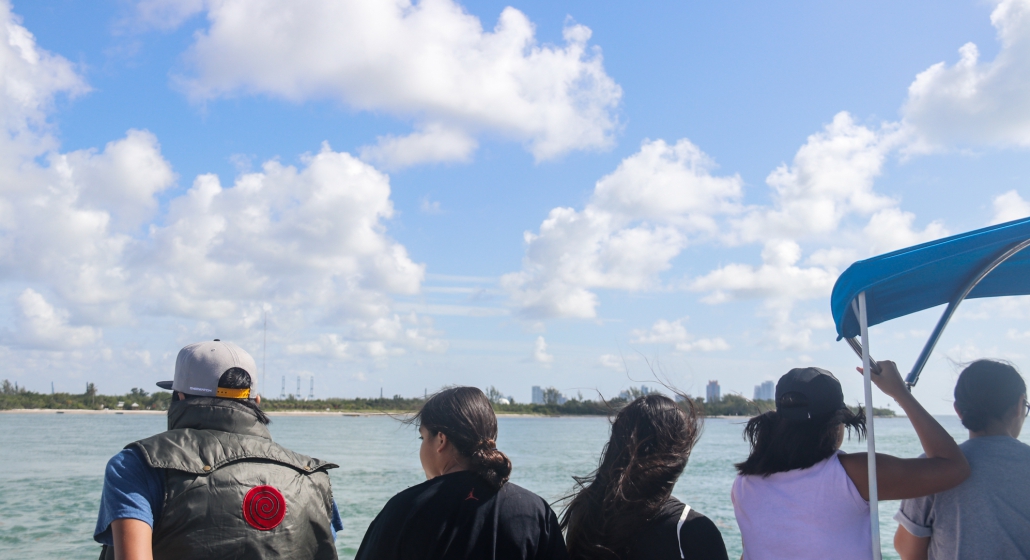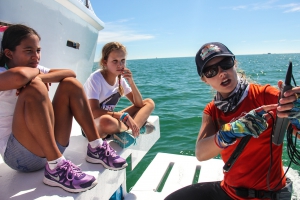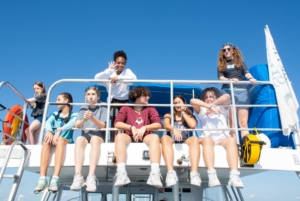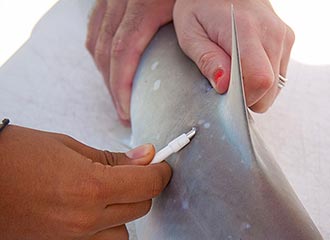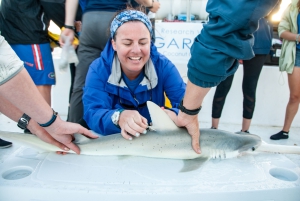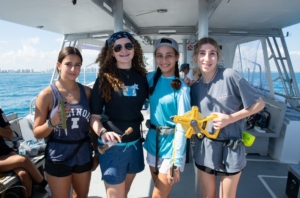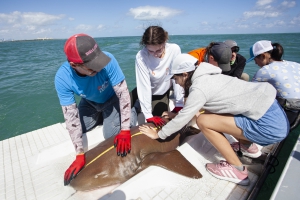Experiential Learning for Future Science Leaders
SRC provides year-round experiential marine conservation learning opportunities for young adults. Students onboard will take an active role in real scientific projects, learn about the scientific method, and gather data that helps us understand and conserve sharks and rays.
High school students connect with marine science in an exciting, participatory setting, augmenting traditional classroom education. SRC scientists, staff, interns and volunteers serve as mentors and teachers during field trips. With a ratio of one mentor for every four students, SRC trips are personalized learning experiences.
“Things you wouldn’t get inside a typical high school class are brought to our interest, in the most extraordinary way.”
— Vilma Sooknanan
South Broward High School Student
Many students enjoy learning first-hand about the career paths possible within the field of marine conservation.
“I have studied the scientific aspect of marine biology since the 6th grade, but one opportunity I have recently come across from shark research is as a marine photographer/videographer. Therefore, aside from gaining personal skills that help me in life, and benefiting the marine environment, I have been introduced into new career paths that I may take up in the future.”
– Chelsea Currie
South Broward High School Student
National Ocean Science Bowl – Team President

